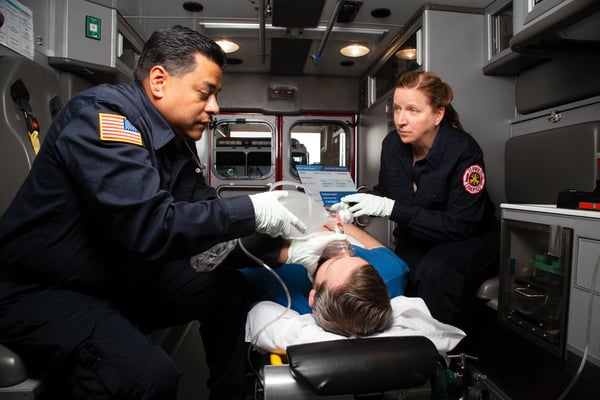Chart Smarter: Why One EMS Agency Ditched Paper for Mobile Tech
What’s Next? More EMS Billing in the COVID Environment
Like all other providers in the healthcare ecosystem, emergency medical services (EMS) agencies have been impacted in many ways by the COVID-19 pandemic

Like all other providers in the healthcare ecosystem, emergency medical services (EMS) agencies have been impacted in many ways by the COVID-19 pandemic. Maggie Adams, president of EMS Financial Services, recently shared her thoughts in a webinar on what EMS agency leaders can do to better understand the true impact of the pandemic on documentation and billing practices and improve reimbursement going forward. She also provided insight into how agencies must prepare for the resumption of billing and reimbursement rules, temporarily paused due to the public health emergency.
COVID-19 has demonstrated how difficult it is for many EMS agencies to understand precisely where opportunities exist in their business to extract more revenue. For example, some revenue goes uncollected because a question or issue was not addressed in the request for service. Another common example is non-emergency transports. Essential demographic and insurance information should be collected at the time of the request for service. This includes whether the patient’s insurance plan requires network participation or authorization. EMS leaders can review non-emergency call center practices and workflows to determine whether the necessary information is consistently being captured to support full reimbursement.

A second reason revenue can be hard to capture is decentralized or disorganized customer accounts. Many EMS organizations can tap into more revenue by examining their account lists. Is there a consistent naming convention when adding new accounts? Are some accounts duplicated due to misspellings or name variations? A great example is accounts related to the Department of Veterans Affairs. These may appear in a system variously as Veterans Administration, VA, Pennsylvania VA, etc. Agencies are unable to get a holistic view of their business performance if the same account is in the system by three or more different names. It’s very difficult to see what the Department of Veterans Affairs owes an agency if the balance is scattered across various accounts.
EMS agencies can also evaluate whether they are taking advantage of all the capabilities offered by their computer aided dispatch (CAD) systems. Are there untapped capabilities that can help capture more or better information? Now is the time to review these capabilities with the software vendor to maximize the benefits of that investment.
Finally, at the beginning of the pandemic, some billing and reimbursement rules were changed temporarily. Agencies must prepare for those rules being put back in place. Perhaps an organization is now running more Specialty Care Transportation (SCT) than pre-pandemic. It is important that an agency’s team understands the definitions for this level of service so that the transports are billed correctly in accordance with the billing and reimbursement rules that are back in place.
Maggie offers more valuable insights, on Medicare and more in the webinar, “What’s Going on and What’s up Next: Billing in a COVID Environment.”
Related Posts
The End of Delayed Documentation
News Alert: New ePCR Integration Simplifies EMS Data Management and Enables Better Care Coordination
ZOLL Pulse Blog
Subscribe to our blog and receive quality content that makes your job as an EMS & fire, hospital, or AR professional easier.
ZOLL Pulse Blog
Subscribe to our blog and receive quality content that makes your job as an EMS, fire, hospital, or AR professional easier.





